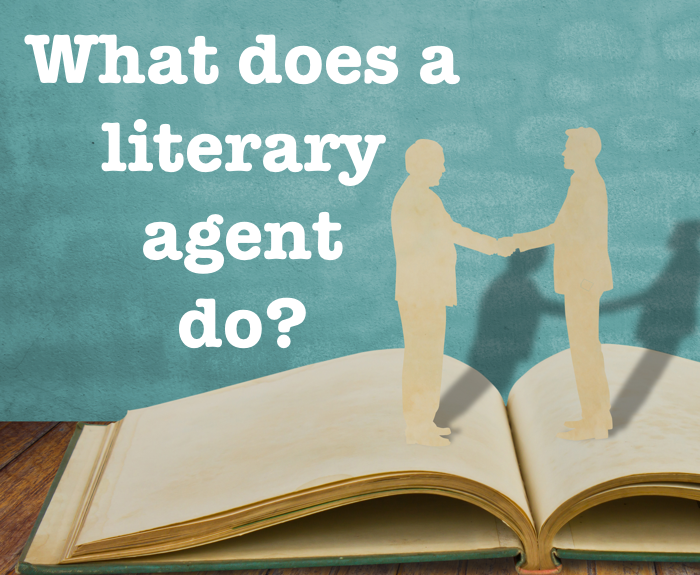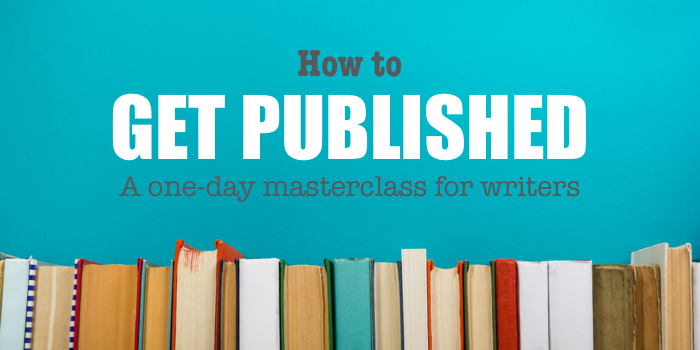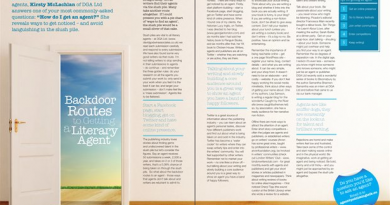What does a literary agent do?
 Children’s agent Hilary Delamere answers a frequently-asked and fundamental question about agents: What are they for and what do they do?
Children’s agent Hilary Delamere answers a frequently-asked and fundamental question about agents: What are they for and what do they do?
This article first appeared in issue 6 of Publishing Talk Magazine.
[rt_reading_time label="Reading Time:" postfix="minutes" postfix_singular="minute"]
Agenting is best thought of as a partnership with the client: working together to get published, to build an author’s or illustrator’s profile and career.
It might seem fanciful to extend this partnership approach to publishers, but we do all have a collective interest in the future of a successful publishing industry. But if it is a partnership then it is one with the author at the centre. From the author’s perspective the initial interest is in finding an agent and securing the first deal. It is assumed that the rest will then fall into place and the agent’s work is done. But this is just the start.
There are decisions to be made: the material to submit, the offers to accept. The size of the advance is only one aspect; we might be looking for a multi-book offer. A multi-book deal may seem the ideal outcome: it brings more money up front and gives the comfort and security of a long-term commitment. But, on the other hand, books that have been partially paid for yet are still to be written can start to feel a like a millstone around the neck.
We are looking for the most convincing commitment from the publisher
Rather, we are looking for the most convincing commitment from the publisher and that often means having a ‘champion’ within the publishing house. However, the commissioning editor’s choice will be challenged along the way and the book might not be picked up as the publisher had anticipated either by retailers, reviewers, or by overseas publishers. Nevertheless, we need the editor and her team to stay focused and back the book through all its stages. For the publisher this is a commercial gamble and not a literary competition; some brilliant books don’t sell initially, or perhaps don’t work in the market at all – it doesn’t make them any less brilliant.
Being published throws up new questions and decisions to be made: how much editorial work the publisher wants and whether this is acceptable; the timing of publication and its implications; the cover, which the agent /author is sent and might love or loathe; the launch plans; the request to meet booksellers or the sales team; or (more alarmingly) the fact that nothing much seems to be happening.
Authors need to try and understand how the industry works
Authors need to try and understand how the industry works. The agent will tell them what is normal, inevitable, or completely unacceptable, and will try to sort out misunderstandings, demand more action from the publisher, or ensure the author is informed of promotion plans. And occasionally this will mean explaining to the author the difference between what publishers say and what they really mean!
Decisions on the exploitation of the subsidiary rights, either by the publisher or, if retained, by the agent, may need to be taken quickly. The first translation rights may be sold before the book is published, but if a book doesn’t immediately take off they can be picked up later, often on the basis of a sales ‘story’. To encourage an overseas publisher to look again at a title we might use impressive sales figures at home, great reviews, short-listing for prizes (and winning them!), and the purchase of the film rights (not just an option). Alternatively, when the next title is published, perhaps more successfully, the backlist will need to be revisited and hopefully exploited. Genres come in and out of fashion, so a backlist title might merit a second outing if the prevailing fashion starts to look on a particular genre or style of artwork more favourably.
Of course, there might be film or TV interest predicated on the title being a successful book on which investment and funding can be raised. Book sales inspire confidence in the investor, as it is perceived to have built a brand or fan base. A good deal of the agent’s work in these areas is about decoding the interest. Just because a screenwriter or producer phones from LA does not mean that they have financial backing, are reliable, or right for the project.
The questions and decisions pile up and the agent is there to advise and handle them. Sales figures need to be interpreted – authors often ring me to say that their editor is very excited about the sales of their first book – but the numbers don’t always seem to relate to those bandied about by the press and they will often ask, ‘is this good?’ An author shortlisted for prizes and possibly winning some may come under pressure from the publisher to blog, tweet, build a following, write a new book, even write a series.
Meanwhile, another publisher starts to make flattering overtures but the author wonders: is this the moment to switch allegiance from her first publisher? Can she write for both? Will they conflict – or can the two strands of work be kept separate? On the other hand there may be silence and the book doesn’t get the attention everyone hoped for, and the author wonders if the publisher even wants the second contracted book. Or, having signed up and had the first book published in a series, the book’s ‘champion’ in the publishing house leaves, or moves job and the author feels bereft.
The fixes might not be easy, the answers not welcome; they may require a re-assessment and re-boot of the author’s career. It isn’t just a simple sequence of contracts and books from one publisher coming through in easy succession: progress isn’t always linear. Building a career, creating a profile as a writer or illustrator, and earning an income, are sometimes in direct conflict.
If all works well, an author’s relationship with her agent will see her through the ups and downs of a publishing career. Hopefully the success of that first deal happens over and over again, each time taking on a different complexion. As the author’s profile rises and the number of books published increases, so the deals become more complex and inter-related. By now there are obligations and relationships with publishers, which have to be managed.
When editors and publishers change and move, the agent provides continuity
It is for this reason that the longevity of the relationship with an agent can have so many benefits: when editors and publishers change and move, the agent provides continuity. Authors and illustrators do change agents, of course. I have clients with backlists elsewhere, and it does make it harder to piece together an accurate history. The agent can’t sell translation rights having re-launched a ‘classic’ if she doesn’t know where it has been published before.
The work should make you happy, make you proud, or make you rich
I conclude by paraphrasing a publishing executive’s words, which apply equally to an agent taking on new talent; that you should publish a book for at least one of three reasons: the work should make you happy, make you proud, or make you rich. But who among us knows the publications that will be huge successes? If we did, there would be no remaindered books, and not all books can top the bestseller lists. What we do know is what makes us happy and proud – and when it makes us money as well, then we have a publishing industry that works for us all.



If you have published your children’s books as an independent publisher, can you still ask for an agent to help move your book into the children’s market?
Hi, Both of my mg books received stellar reviews from Kirkus, yet it didn’t mean anything to the many agents I have queried. I would really appreciate an explanation, since agents are constantly telling us that they want beautifully written books.
Thank you,
Nancy Kunhardt Lodge